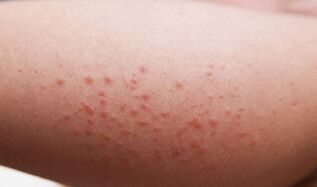
It is often difficult to determine the presence of parasites in the human body. It is almost impossible to do it yourself. Because in the first stage, you may simply not understand that something is wrong with your health. And in the later stages, when real health problems begin, the symptoms are usually attributed to something and are mostly treated separately without a deep understanding of the problem.
There is nothing more disgusting than the thought of a worm in your stomach, but there are those who voluntarily want to swallow the parasite to lose weight or "get rid of toxins"
After reading this article, you can study the problem in more detail and understand in time how to determine the presence of parasites in the body, that is, to restore the whole picture of your body.
What parasites can be in our bodies
Basically, organisms that parasitize our organs can be divided into two types: endoparasites and ectoparasites.
Endoparasites parasitize on our bodies and other tall organisms, living in them and feeding on the cells of living things. Endoparasites are all worms, lamblia, toxoplasma, echinococcus. It can be a fungus, a bacterium or a virus.
The second type of bacteria are ectoparasites. They live on the surface of bodies, that is, in our nature, in our bodies. Their food is the cells of our tissues, such as our skin, as well as our blood. Specifically, these are parasites such as bugs, lice, fleas, ticks. Mosquitoes and flies are also called ectoparasites.
How can the presence of parasites in the body be determined based on symptoms?
How to find out if there are parasites in your body, appearance and internal condition can be.
Parasites are associated with a number of symptoms. Because these symptoms are quite popular, as are symptoms of common diseases, people usually do not even suspect their presence in the body. Therefore, the symptoms are treated separately and they reappear after treatment.
You can often find doctors' recommendations to start treatment if you experience more symptoms in the following groups with antiparasitic drugs. In any case, it helps you become healthier. Below is a complete list of symptoms, divided into groups, and you can learn how to determine if there are parasites in your body.
Gastrointestinal symptoms

- constipation.Worms can be quite large. Therefore, they may block some outlets of the digestive tract. Some parasites can completely block the intestinal and bile ducts. This usually affects your stool. It can become rare and difficult;
- diarrhea.Diarrhea is generally thought to be a well-known reaction to malnutrition. But this is not always the case. Many bacteria produce hormones that affect stool in this way;
- gases and bloating.Very often, parasites are found in the small intestine, and this usually leads to bloating and then abundant gas. If the bloating is almost constant, this is an opportunity to reconsider the possible presence of parasites in the body;
- irritable bowel syndrome.Because parasites feed on substances from our bodies, such as fats, the intestinal walls are very often irritated. This is followed by some reduction in symptoms and absorption of nutrients. So the substances are not absorbed but immediately enter the colon, leading to digestive problems.
Invasion of almost every parasite in the blood test increases the number of eosinophils.
Joint and muscle pain
Parasites have a special ability. They can live by passing through the body, it is their job to settle in the most comfortable place in the body. One of these places is joint fluid and muscles. The symptoms are painful, usually similar to the symptoms of arthritis, but this is not always the case.
Parasites cause great damage to muscle tissue or immunity. Therefore, their presence in the body develops into muscle pain.
External manifestations of parasites

- allergies.Parasites are constantly releasing toxins. Toxins cause a lot of damage to the body because large doses of special protective cells are released. They have a detrimental effect on the body and this leads to the appearance of allergic reactions;
- problem skin.Parasites can cause not only allergies, but also various skin ulcers, acne or pimples, and other external reactions. So think about it if you have persistent skin problems. This helps determine the presence of worms;
- anemia.Many bacteria "steal" nutrients and this leads to blood loss. It follows the lack of iron;
- weight problems.It is generally accepted that worms can only reduce their weight, but this is a big misconception because parasites can increase their weight. In the case of heavy weight loss, the reason is always that worms absorb our food faster than ourselves. Weight loss symptoms are a proven method to determine if you have worms. But obesity is more complicated. It appears because of our low blood sugar. As a result, an irresistible appetite appears as it negatively affects the metabolism. Obesity can only be a defensive reaction of the body.
The main symptoms of intestinal parasites are fever, nausea, vomiting, loose stools and hives-like skin rashes.
Nervous system symptoms
- Nervousness.Due to irritation caused by parasites in important organs, even minor in nature. However, the person may not notice any other symptoms. So you can identify the life of parasite organisms based on the state of your nervous system.
- Sleep disorders. Very often a person associates constant awakening with diseases of the nervous system, but more often the case lies elsewhere. At night, the liver begins to work, and when it removes toxins, our bodies are very active. Because of this, there may be awakenings during sleep.
- Sanding teeth during sleep.Certain types of bacteria can irritate the body so much that bruxism is possible. Moreover, it is a very common symptom. Thanks to him, you can easily learn how to recognize the presence of foreign bodies in the body of an adult, or more often a child.
- Chronic fatigue syndrome.This symptom, which in some cases is a unique disease, includes many others. These are apathy, depression, fatigue, decreased attention. This is due to the fact that parasites consume huge amounts of nutrients and nutrients. And of course the body stops them.

If the brain is affected by cysticercosis, nervousness, headaches, seizures, pseudoepileptic seizures will be typical.
Other symptoms
- Immune disorders.Prolonged rhinitis, runny nose, cough can be the result of a weak immune system. This is weakened by a lack of nutrients.
- Oncological diseases.One of the most common causes of organ failure and cancer is a parasitic organism. They can sit down in your organs so much that it often leads to long-term consequences - serious illnesses.
- Inflammation of the airways.The movement of worms in the body has already been told. The other most convenient place is the airways. This is followed by coughing, discharge and runny nose.
Conclusion
These are the real symptoms of parasites. Worms can live in your body for a very long time.
It is very important to know in time how to control their presence and prevent possible consequences.
















































